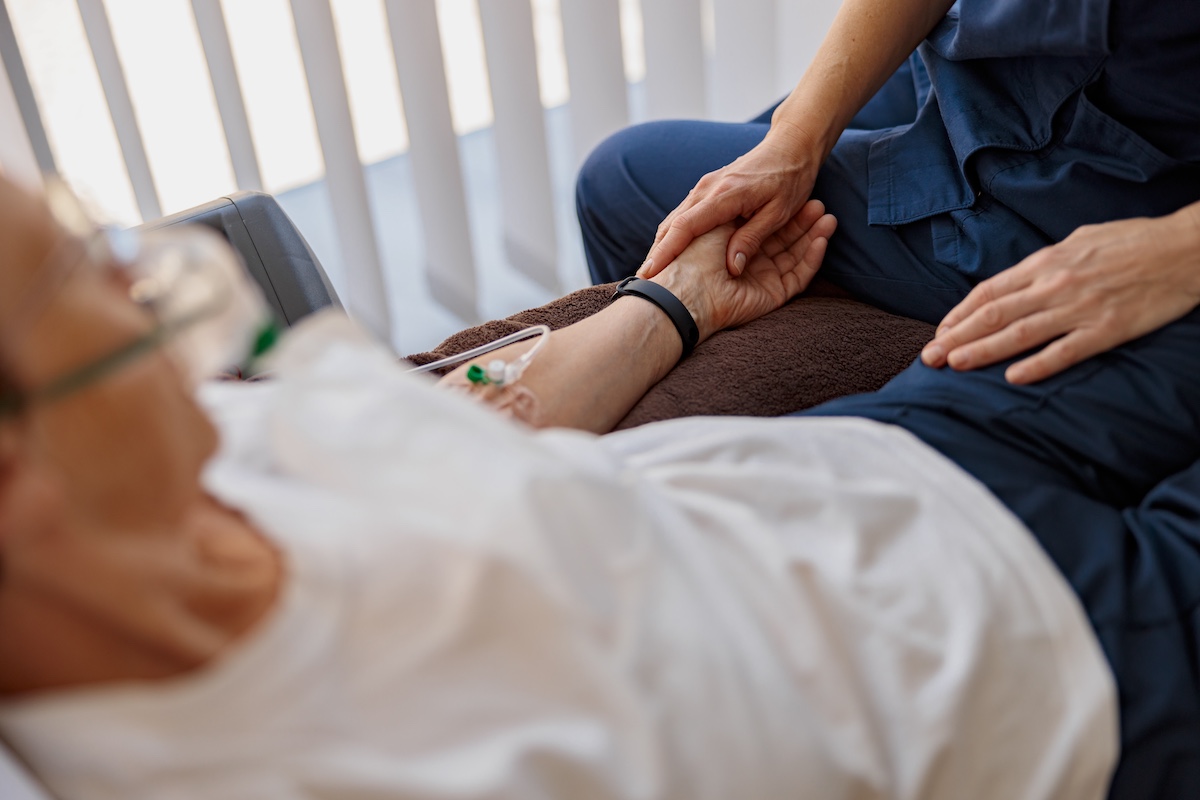Making the decision to consider hospice care for a loved one can be emotionally challenging, but it is often one of the most compassionate choices a family can make. Hospice care focuses on comfort, dignity, and quality of life for individuals with life-limiting illnesses.
Recognizing when a loved one may benefit from hospice ensures that they receive the specialized care and support they need in their final months or weeks.
Hospice care is not about giving up; it is about prioritizing comfort, symptom management, and emotional well-being. Understanding the signs that a loved one may be ready for hospice can help families make timely decisions and access resources that improve both the patient’s and family’s quality of life.
1. Frequent Hospitalizations or Medical Interventions
One of the most common indicators that a loved one may need a higher level of care is frequent hospitalizations or repeated medical interventions without significant improvement. When a chronic illness or life-limiting condition becomes difficult to manage, emergency room visits, hospital stays, or aggressive treatments may increase.
If your loved one experiences recurrent infections, falls, or complications from chronic diseases like heart failure, COPD, or advanced cancer, it may signal that traditional medical interventions are no longer providing meaningful improvement. Hospice care can shift the focus from aggressive treatments to comfort, symptom management, and quality of life.
2. Decline in Physical Function
A noticeable decline in physical function is another sign that this type of care may be appropriate. This can include difficulty with basic activities of daily living (ADLs) such as bathing, dressing, eating, or walking.
Weight loss, fatigue, and increasing dependence on others for mobility are also red flags. When seniors or patients with chronic illnesses begin losing independence, hospice teams can assist with daily care, physical comfort, and safety at home. The goal is to ensure dignity and reduce stress for both the patient and family.
3. Uncontrolled Symptoms
Hospice care excels at managing pain and other distressing symptoms. If a loved one experiences uncontrolled pain, shortness of breath, nausea, or other persistent symptoms despite ongoing treatment, hospice may be the next step.
Patients with advanced illnesses may struggle with frequent discomfort or frequent hospital visits to address symptom flare-ups. End-of-life care teams offer medications, therapies, and strategies to manage symptoms in a way that maximizes comfort, allowing patients to spend time with family rather than in medical settings.
4. Frequent Changes in Mental or Cognitive Health
Cognitive changes such as confusion, disorientation, or increased forgetfulness can indicate a progression of illness and a need for specialized support. Dementia, Alzheimer’s disease, or the effects of severe chronic illness can increase vulnerability to accidents, anxiety, or emotional distress.
Hospice care provides support not only to the patient but also to families, offering guidance on managing cognitive decline, ensuring safety, and maintaining emotional and spiritual well-being during the final stages of life.
5. Decline in Appetite or Weight Loss
A significant decrease in appetite or unintentional weight loss can be a sign that the body is preparing for the final stages of life. Patients may lose interest in food, eat smaller portions, or struggle with swallowing.
While nutritional interventions may help temporarily, persistent changes often indicate the body is focusing its energy elsewhere. Hospice care includes guidance on nutrition for comfort, focusing on what the patient can enjoy rather than forcing strict diets. The emphasis is on quality, not quantity, of life.
6. Increased Need for Emotional and Spiritual Support
As patients approach the end of life, emotional and spiritual concerns often intensify. Anxiety about death, fear of the unknown, or feelings of sadness and isolation may become more prominent.
Hospice care addresses these needs through counseling, chaplaincy services, and compassionate communication. Families also benefit from emotional support, helping them navigate anticipatory grief, stress, and caregiving challenges. Hospice provides a holistic approach that treats the mind, body, and spirit.
7. Repeated Infections or Immune Complications
For patients with weakened immune systems, repeated infections or complications may signal that aggressive treatments are no longer effective. Chronic illnesses, advanced age, or terminal conditions can increase susceptibility to diseases like pneumonia, urinary tract infections, or sepsis.
Hospice care focuses on comfort and prevention of suffering from such complications. By managing symptoms and supporting overall well-being, hospice allows patients to remain in familiar surroundings while minimizing distressing medical interventions.
8. Decline Despite Ongoing Treatment
If a loved one continues to decline despite ongoing medical treatment, it may indicate that a shift to hospice care is appropriate. When curative efforts no longer provide meaningful improvement or come with significant side effects, hospice focuses on enhancing comfort rather than prolonging life at the expense of quality.
Families often notice that hospitalizations, medications, or procedures no longer result in significant improvement. Hospice helps patients and families redirect energy toward meaningful experiences, connection, and peace.
9. Frequent Fatigue or Loss of Energy
Chronic fatigue or rapid exhaustion from minimal activity is a common sign that a patient may need a higher level of care. Tasks that were once manageable may become overwhelming or impossible.
Hospice teams help patients maintain dignity and independence by adjusting daily routines, providing supportive care, and recommending adaptive equipment if needed. Energy conservation becomes a key component of care, allowing patients to focus on meaningful activities rather than exhausting themselves.
10. Open Communication with Your Loved One About Hospice
Another important consideration is whether your loved one wishes to receive comfort-focused care. This type of care is most effective when patients and families communicate openly about goals, preferences, and expectations.
Discussing hospice does not mean giving up; it allows the patient to participate in decisions about their care, symptom management, and final wishes. Family members should feel empowered to ask questions, seek guidance from healthcare providers, and explore hospice resources together.
When to Consider Hospice
Hospice care is typically recommended when a physician estimates that a patient has six months or less to live if the disease follows its usual course. However, timing can vary based on individual circumstances.
It’s important to remember that end-of-life care is available at home, in dedicated hospice facilities, or in nursing homes. The focus is on comfort, dignity, and quality of life rather than aggressive treatment.
Early consideration allows families to access support services, plan meaningful experiences, and reduce stress during the final months.
Final Thoughts: Is It Time for Hospice Care?
Recognizing the signs that a loved one may need hospice care can be difficult, but profoundly important. Frequent hospitalizations, declining physical function, uncontrolled symptoms, cognitive changes, loss of appetite, and emotional needs are key indicators.
Hospice care provides specialized support that prioritizes comfort, dignity, and quality of life. It allows patients to spend meaningful time with loved ones while minimizing unnecessary medical interventions. Families also benefit from emotional support, guidance, and respite, making the journey more manageable and compassionate.
If you notice these signs in a loved one, consider discussing hospice care with their healthcare provider. Early engagement allows for better planning, more meaningful experiences, and a supportive environment that honors the patient’s preferences and well-being.


